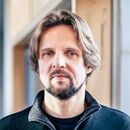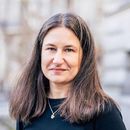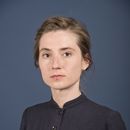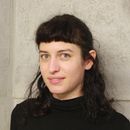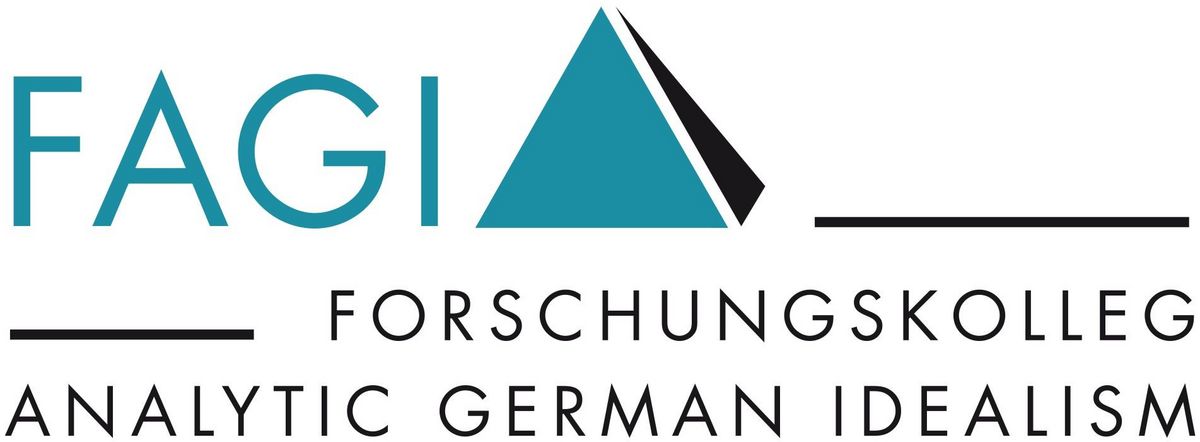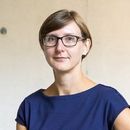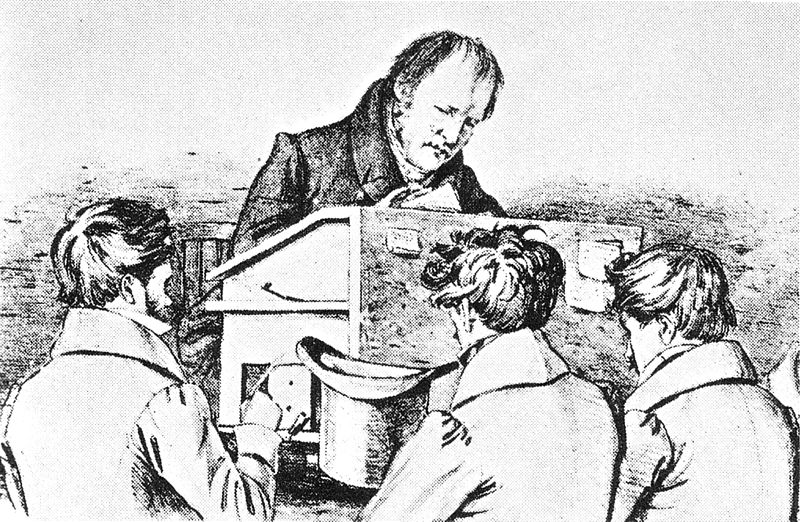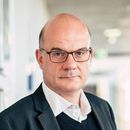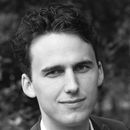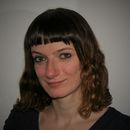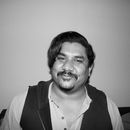We present the current research focus areas and projects at the institute. Completed projects can be found in the archive below.
Current Research Projects
Project description
The concept of evil has largely disappeared from moral philosophical literature. This is due to the fact that this literature understands the good as a norm. What does not fulfill a norm is probably deficient, but not evil. With evil, the metaphysical depth of good disappears: In norms that regulate our behavior, we do not relate to the whole.
It is a protest against this narrowing of the good when an all-dominant anthropocentrism of our ethics is lamented. But the complaint itself is too narrow. Respect not only for man, but for all sentient beings, yes, for nature in general, is supposed to give us the rule of action. In this, however, man does not decenter himself. It is true that all this now appears in the content of ethical norms. But man remains the center in the fundamental sense that the good lies in norms that regulate man.
That the subject matters of ethics is norms, rules, laws, seems so self-evident that this idea is addressed nowhere . Ethics as a whole is juridified. This has far-reaching political-practical significance, and it has significance for all undertakings in the humanities that follow a critical impulse in the broadest sense, namely insofar as normativism forms their horizon. The planned book Good and evil wants to open new space for thinking about ourselves by breaking this restriction.
The basic idea of Good and evil is that in the consciousness of evil, even more fundamentally than in the idea of being, opens up the whole, and this because practical thinking is not only the consciousness of a contrary opposition, of a so or so, a choice therefore, and good or bad. Rather, it is the consciousness of an adversarial opposition, a yes or no, a contradiction then, and good or bad. Thus the centering on myself breaks down in the very last thought in which I think of myself.
The book develops its basic idea in three steps. The first is a critique of the understanding of the ethical "good" as a norm and the related idea of bad as a deficiency. The second step discusses the attempt of Kant and some new authors to determine evil as an adversarial opposition, but in such a way that the practical consciousness of the good does not incorporate this opposition. Finally, the third step explores an understanding of "good" in which it is consciousness of an adversarial opposition and, precisely therein, what I am. Through the three steps, the ethical relation to the other is transformed. In the first it is praise and blame, in the second compassion and concern, and in the third forgiveness and love.
The research project is financed by an Opus Magnum grant from the Volkswagen Foundation, which was awarded to Professor Sebastian Rödl for a period of 18 months (2023-2025).
Opus magnum
Project description
Man is an animal. However, a dignified tradition holds that he is not merely an animal; that is, that man is fundamentally different from the other animals. But what constitutes this difference? Does the difference lie in a certain characteristic? This characteristic can only consist in an ability, that is, in something that humans can do and the other animals cannot. Various candidates have been proposed: the ability to speak, to cooperate, to use tools, etc. The candidate that has found the most adherents in the tradition is: reason.
However, this approach has a fundamental problem. No matter which candidate is proposed, we always find animal species that exhibit behaviors that suggest the possession of something very close to the ability in question. What follows from this? Should we abandon the idea of a profound difference between humans and other animals? Assimilationalists draw this conclusion. They believe that man differs from the other animals at best in the degree to which certain abilities are expressed, but not fundamentally. Now this is precisely what (a certain group of) those who hold to the idea of a profound difference insist upon. These differentialists locate the fundamental difference between humans and other animals in the particular way humans lead their lives, namely guided by rationale, by reason. For these theorists, however, the question is how exactly this particular capacity for reason is added to animal capacities. It has been repeatedly argued that this remains mysterious. One way out would be to view reason not as another ability added to the capabilities of animals, but as the special form that animal abilities take in man. The difference of man from the other animals then lies in the way in which the abilities of man form a unity. This is fundamentally different in humans from the way animal abilities form a unit.
The working hypothesis of the project is therefore that reason is not another ability that, in humans, complements their animal abilities and that the other animals lack; rather, it is the form that human abilities take in contrast to those of the other animals.
Management of the Research Project
Employees
The research project was led by Prof. Andrea Kern and Prof. Henrike Moll (University of Southern California, USA) from 2012 to 2014 and funded by the Saxon State Ministry for Science and the Arts (SMWK).
Collaborators in the project: Dr. Detlef von Daniels, Dr. Anna Flocke, Dr. Rebekka Gersbach, Dr. Jonas Held, and Christian Kietzmann.
The Research Center for Analytic German Idealism at Leipzig University, also called FAGI (Forschungskolleg Analytic German Idealism), is the lynchpin for an internationally oriented network for philosophy and is currently funded by James Conant's Humboldt Project.
The Research Center unites analytic philosophy with German Idealism - understood both as historically rooted traditions of thought and as contemporary forms of current, philosophical research practice - in three ways. First, it facilitates dialogue between researchers working on classical German philosophy and those working within the tradition of analytic philosophy. Second, the College facilitates a historically oriented investigation of both the common origins, the approach phases, and the current forms of mergers between the two lines of tradition. Third, and most important, it provides a venue for exploring the influences of the two philosophical directions on each other, especially as reflected in the work of those contemporary philosophers on both sides of the Atlantic who resist clear classification in either tradition.
Management of the Research Center
The International Working Group on Hegel's Philosophy of Nature has existed for thirty years. It works under the direction of Prof. Wolfgang Neuser (Kaiserslautern) and Prof. Dieter Wandschneider (Aachen). The working group meets annually with the aim of presenting the research of its members on Hegel's philosophy of nature, or on natural philosophy in general, and thus bringing it to philosophical attention. The proceedings continue to be published by Königshausen & Neumann.
Since 2011, the Institute of Philosophy of the University of Leipzig has hosted the working group several times. The annual conferences of the working group are co-organized and supported by the members of the Institute of Philosophy Prof. Pirmin Stekeler-Weithofer and Prof. Nikolaos Psarros, among others. The contributions of the conferences will be published. The conferences after 2011 have been published in several volumes, among others: Peter Heuer, Wolfgang Neuser, Pirmin Stekeler-Weithofer: Der Naturbegriff in der Klassischen Deutschen Philosophie, Würzburg: Königshausen & Neumann 2013 and Pirmin Stekeler-Weithofer, Wolfgang Neuser: Die Idee der Natur. Analyse, Ästhetik und Psychologie in Hegels Naturphilosophie, Würzbug: Königshausen & Neumann 2022.
The German Association for Historical Peace and Conflict Research aims to contribute to the study of the problem of peace in all its historical dimensions. The main focus of its work is the historical analysis of efforts to prevent wars, to limit intra-societal violence, to resolve conflicts peacefully, and to develop a lasting peace. This is not based on a binding definition of the concept of peace. The working group therefore unites a variety of positions, approaches, and interests.
Social ontology is a new and rapidly expanding field of modern philosophy. It investigates the question whether social occurrences and phenomena have an independent ontological status, how this status comes about, and whether these occurrences and phenomena can be brought into a logical-conceptual order.
The Project Group Social Ontology meets once a month during the semester in the context of Prof. Dr. Nikos Psarros’ advanced seminar. External speakers are invited to the meetings at regular intervals.
Completed Research Projects
Project description
The history of logic is much more complex than is generally assumed: Common terms are "Aristotelian" or "traditional syllogistic" and "classical" or "modern logic". However, we also want to focus our attention on the logics of Leibniz, Fichte, and Schopenhauer, the Indian and non-classical logic, and logical empiricism, among others. They all produce different views on the concept of logics as well as on the logic of concepts.
For this purpose we organize the conference
“Concepts of Logic - Logic of Concepts”
from October 7th-9th, 2021
In lecture hall 015, house 5,
Marschnerstr. 29e, 04107 Leipzig.
Speakers: Lucas Amaral (São Paulo), Claudia Anger (Hagen), Philipp Leon Bauer (Wien), Zara Berrueta (Paris), Raphael Borchers (Leipzig), Maria Beatrice Buonaguidi (London), Christian Damböck (Wien), Michal Dobrzański (Warschau), Eva-Maria Engelen (Konstanz), Elena Ficara (Paderborn), Eli Franco (Leipzig), Julia Franke-Reddig (Leipzig), Natascha Gruver (Wien), Jonas Held (Leipzig), Jens Lemanski (Hagen), Martin Lemke (Rostock), Marko Malink (New York), Jan Masurczak (Leipzig), Ingolf Max (Leipzig), Alfred Olszok (Leipzig), Volker Peckhaus (Paderborn), Valentin Pluder (Siegen), Jan Podacker (Duisburg/Essen), Nikolaos Psarros (Leipzig), Monja Reinhart (Paderborn), Christopher Roser (Berlin), Shafie Shokrani (Siegen), Lucas Skiba (Hamburg), Friedrich Stadler (Wien), Niko Strobach (Münster)
The event is sponsored by the Hans-Böckler-Stiftung (programme "Zuschüsse zu kleinen wiss. Tagungen", application by Ms. Franke-Reddig & Mr. Borchers) and the FernUniversität Hagen (PD Dr. Jens Lemanski).
All interested parties are cordially invited to attend the conference. Please register in advance if you wish to attend as a guest student. A participation fee will not be charged.
Management of the research project
Employees
For updated information, please visit:
www.facebook.com/BegriffeDerLogikDerBegriffe
blog.fernuni-hagen.de/euler-venn-diagrams/tagung-summer-school-21
Project description
The overall scientific project goal of the two research groups at the philosophical institutes of the Pontifícia Universidade Católica de São Paulo ["Grupo de Pesquisas das Origens da Filosofia Contemporânea" around Prof. Dr. Mario Ariel Gonzáles Porta (https://www.pucsp. br/origens-da-filosofia-contemporanea)] and Leipzig University [headed by Prof. Dr. Max] consists in the multi-layered, historical-systematic investigation of the origins of contemporary philosophy in the current field of tension between analytical and continental - especially phenomenological-hermeneutic - philosophy. We address both the reference to common roots in the scientific upheaval of the 17th century and the precise location of the controversy about philosophical paradigms in the context of scientific and social changes, which began at the end of the 19th century, initially extended into the first half of the 20th century, and beyond that into the present day.
The research project is funded by the German Academic Exchange Service (DAAD) through the program of project-related personal exchange with Brazil from 2020 to 2021.

